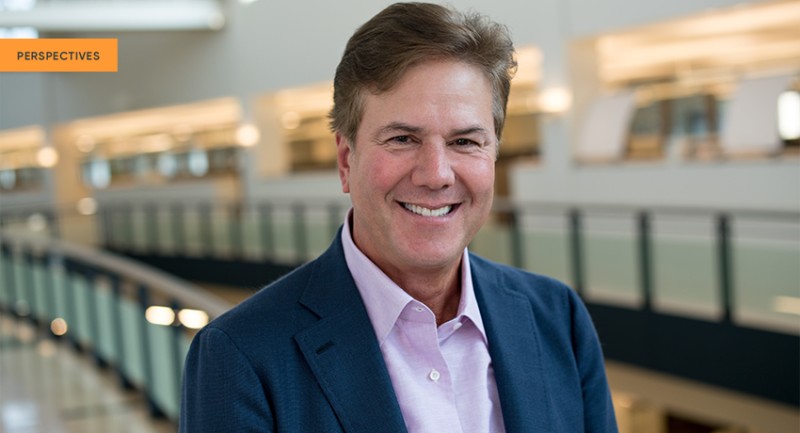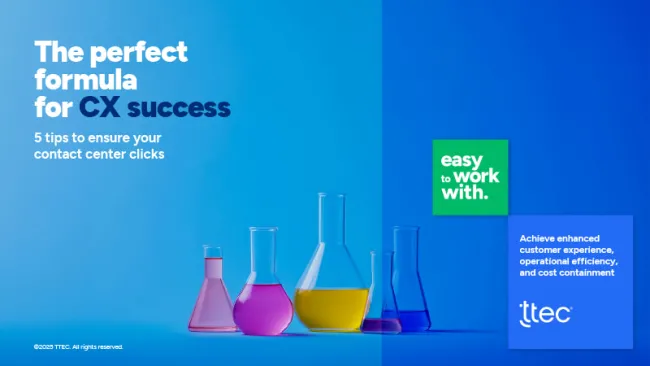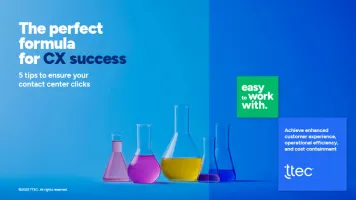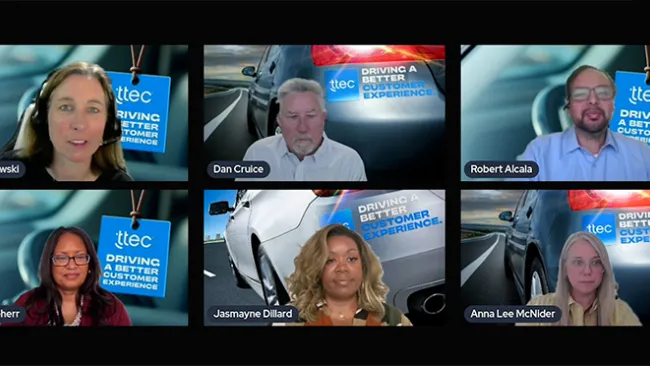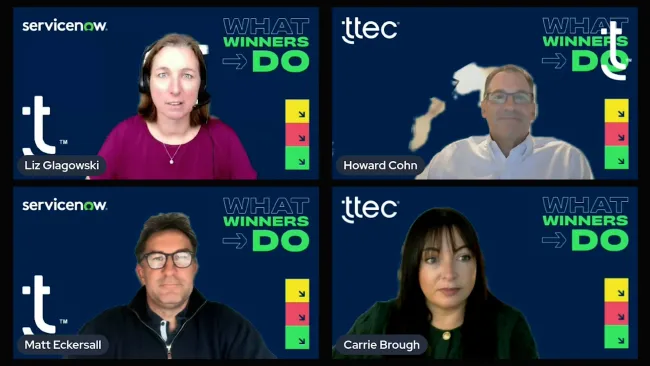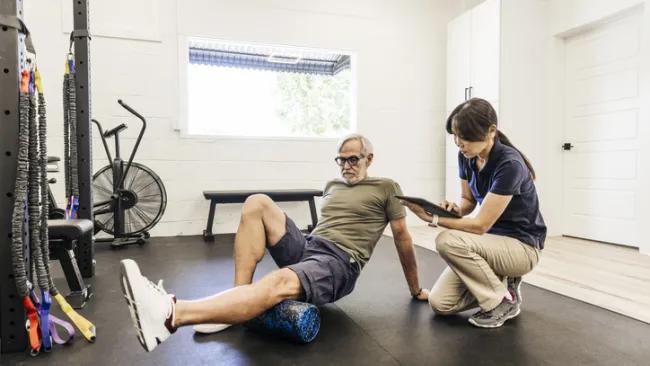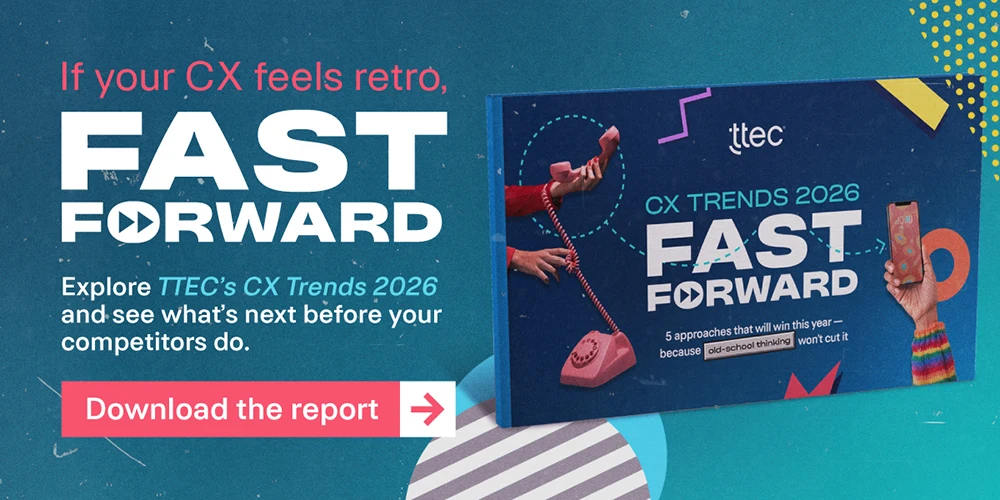A self-described “constructive discontent,” teen-age Ken Tuchman sold bicycles in the San Fernando Valley before launching TeleTech, at age 22. Today, his renamed TTEC operates on six continents with nearly 70,000 workers speaking 50 languages — all dedicated to lifting the customer experience.
“We are here to help you solve your relationship issues,” he told Customer Strategist Journal in a wide-ranging interview.
Customer Strategist: Four decades since you launched TeleTech, now called TTEC. What’s new?
Ken Tuchman: The business was always about helping brands connect and improve their relationships with customers. Forty years ago, it was a basic teleservices business. We had only three product offerings. We added order processing for direct response TV and catalogs and then basic customer service functions. From there, it evolved into end-to-end customer management. A lot of iterations and each one had different technology requirements.
The business has changed dramatically. Clients have become much more aware that if you don’t treat your customers like you care about them, they now realize they have a lot of other choices. Today, customers can more easily switch to somebody else than before, when they had limited choices and it was more difficult to disconnect and switch.
Brands used to be created by an ad agency. Brands are now created by experience. Ad agencies can only candy-coat your brand so much. It will ultimately boil down to the experience.
CS: What does that mean for businesses when customers have more choice?
KT: Every company is beginning to realize that somehow, some way, they have to face the customer. Look at healthcare. Payers rarely dealt with consumers. Instead, if you had a beef, it went through HR. Now, every payer is dealing 100% directly with their members. They are having to find a way to interact with their end user and the Internet has become every company’s front door.
Our business had to evolve to support these companies across all touchpoints. That is where the whole business is going right now.
CS: How do you manage this change?
KT: We are in a constant state of transformation and so are our clients. You never stop trying to transform, perfect, and create new opportunities. The way we used to operate was every 7ish years, we’d transform the business. You no longer get to plan your strategy well in advance and then focus on executing that strategy. Those days are over.
CS: What’s your thinking on ChatGPT, given you’ve been staying on top of machine learning, artificial intelligence, and neural networks for some time?
KT: For two decades. How could we not be paying attention? Do I think today’s versions of AI are going to be as beneficial as the hype is stating? No. I think this is like any other tool. We are in very early days and there’s a lot of confusion in the marketplace.
The AI that everybody is all excited about has very, very serious issues in that it is learning from publicly available info – and we already know how much misinformation exists on the Internet. That’s No. 1.
No. 2, machine learning creates its own bias. There is a myriad of issues when AI horizontally scans the Internet, because it captures vast amounts of information without discretion. A lot of that data is copyrighted. Lawsuits will come out of this because the trial attorneys will view this as new goldmine. Italy has outlawed it and JP Morgan restricted it.
Where we believe AI will play a very real role in our business is what I call “vertical machine learning AI,” which means we, TTEC, in conjunction with our clients, are creating guardrails and loading the info that AI will use to give the answers. We are not letting it go outside the guardrails and go wild across the Internet.
Horizontal AI is not in any way a solution. Right now, we estimate horizontal AI costs 7x more than what it costs if we do vertical machine learning AI. Our focus is on vertical-based AI.
CS: How does TTEC optimize the customer experience and help clients future-proof their business?
KT: We know how to hire the right people, train them, and manage them to deliver the best possible customer experience at a world class level — at scale. But, if we are not also fixing our clients’ CRM desktops, routing capabilities, and showing them how their IVRs can be optimized, we will hit a glass ceiling on driving the experience to the next level to make it more frictionless.
A lot of companies don’t have chat. That’s an example we can instantly fix in a way that is future-proof: Live chat with humans and automation.
We are here to consult and help clients build this incredible relationship with their customers, where they become brand promoters. That happens over time. It’s about how all these micro moments or micro experiences are handled, regardless of the channel, how they are all coordinated. We are experienced at what makes a customer happy versus what turns them off.
It’s about creating a bond with your customers that becomes a competitive differentiator.
CS: What guiding principles do you have when it comes to automation in CX?
KT: Carefully curate what’s automated. Companies that try to automate so many interactions will ultimately weld the manhole cover shut. When they need to communicate with the customer to maintain a relationship, they no longer have that ability – there’s no connective tissue. If you automate so much that customers are only talking to voice bots and self-service, then marketing has to spend hundreds of millions of dollars to interact with customers – when you already had an actual channel to interact.
CS: In 2001, when TTEC began operations in the Philippines, the country certainly wasn’t the Contact Center Capital of the World it later would become…
KT: That makes me proud of the impact we’ve had on peoples’ lives, the amount of jobs we created, the impact we have had on communities by going to places that never had these types of clean jobs. I’d been to these people’s homes that were literally tin huts and now they are living in modern apartments and have actual bathrooms.
That is what makes me the most proud — how the company has impacted so many hundreds of thousands of lives and shaped an industry. Pioneered it. That means a lot to me. I care about people. My parents brought me up knowing, no matter what, I needed to leave a place better than I found it.
CS: What advice do you have for entrepreneurs today, advice you wish someone gave you in 1982?
KT: I never look back. I don’t spend enough time in the moment, either. I spend the majority of my time in the future.
If you are an entrepreneur, you need to be doing this because you are really passionate and believe in what you are doing. It’s not a means to make a lot of money. Money has to be so not the priority, in my opinion because, if your heart is in the right place and you are passionate about something and you ultimately identify a market and are filling a need — which is what we are doing — at some point, your hard work will pay off and the money will follow.
It's not for everybody. Not glamorous. A lot of sacrifice.
If you don’t have a business partner, it’s a very lonely position because you cannot share your worries with anybody. Your job is to motivate people, to help them feel good about what they are doing, secure. With a business partner, you can share your worries. I never had that. Always bottled up in me. That was probably a mistake of mine to not make a conscious effort to find a partner.
CS: Any closing thoughts from a constructive discontent?
KT: Good is not good enough. You congratulate people when you hit a milestone. Acknowledge, celebrate, but then … what is the next thing?”
